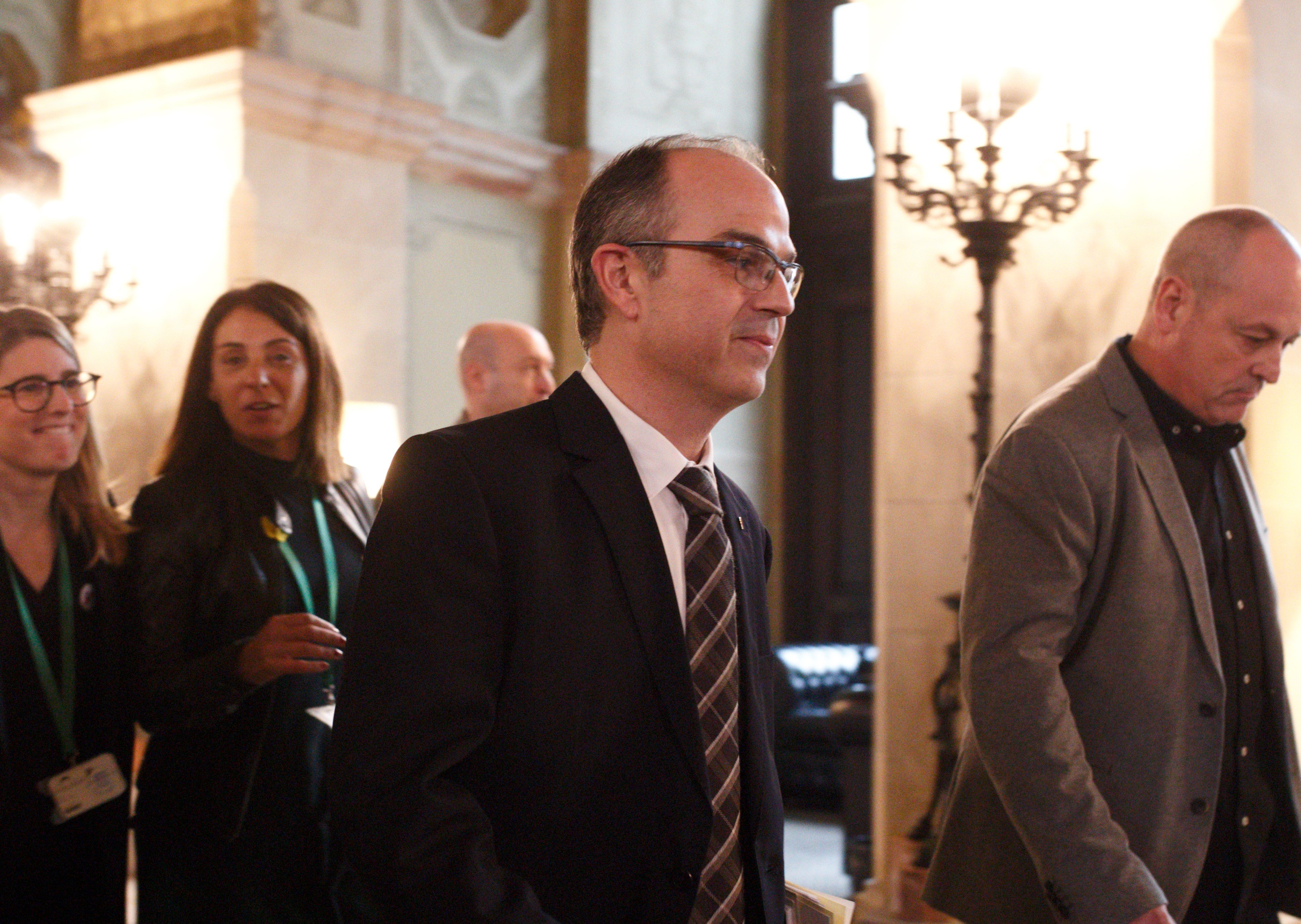One week after the Spanish Constitutional Court made a majority decision to reject the appeal for constitutional protection filed by Catalan pro-independence politician Jordi Turull against the sentence handed down in 2019 by the Supreme Court, the court today released the full text of its decision.
The Constitutional Court ruling dismisses the appeal against the sentence of 12 years in prison and disqualification from holding public office for offences of sedition and misuse of public funds. Now, with the sentence in hand and the Constitutional Court's arguments - which also include a minority dissenting view - Turull's lawyers are preparing to take the case to the European Court of Human Rights. The Spanish court's majority view, however, compiles a long list of justifications for its conclusion that Turull's rights have not been violated - precisely what the European court will have to decide.
In the ruling, reporting judge Pedro González-Trevijano explains that the sentence imposed on Jordi Turull "is not disproportionate, because he was convicted of a crime of sedition in conjunction with a crime of misuse of public funds (article 432 of Spanish penal code)". It also considers that the sentence has not had a "discouraging effect" on his fundamental rights, as he was not convicted for exercising them.
In fact, the Constitutional Court says the opposite. Its decision states that Turull was convicted because, despite court orders, as a promoter of the sedition, along with other defendants, he massively called on citizens to go to the polls on October 1st, 2017, "with the objective of replacing the legitimate legal framework established by the Spanish Constitution and State of Autonomy with the one designed by the Law of Legal and Foundational Transition of the Catalan Republic, the validity and application of which had been suspended by the Constitutional Court".
The Constitutional Court agrees with the criterion of the Supreme Court in denying that the criminal definition of sedition (article 544 in the Penal Code) is based on a "level of vagueness which infringes the guarantee of legal precision", since the infringement it describes is "recognizable with a reasonable degree of clarity". The court once again gives a definition of sedition in the text to endorse the conviction: "Its content requires that active subjects rise up publicly though the tumultuous action of a crowd that uses force or uses extralegal means to prevent laws from being enforced or any authority or public official from exercising their legitimate functions or fulfilling agreements or administrative or judicial resolutions".
For this reason, today's ruling discards that the wording of the definition of sedition makes it impossible to know what conducts are likely to be punished, so that the principle of legal clarity is preserved. Nor does it consider that the Supreme Court applied the article in a way "analogous to in malam partem". That is, it rejects that the law was applied in bad faith to the defendant, and justifies the "aspects on which the conviction of the appellant are based as a co-perpetrator of a crime of sedition, which is set out in detail in his sentence." "The appellant's criminally significant conduct consisted of his active participation in the promotion of the self-determination referendum and his firm opposition as a member of the Catalan government, despite warnings from the Constitutional Court, to the effective enforcement of the prevailing legal measures," it adds.
As well, the judgment, which quotes abundant jurisprudence from the Spanish Constitutional Court and the European Court of Human Rights, rejects each and every one of the appellant's complaints concerning the violation of his fundamental rights (articles 16, 17, 20, 21, 24 and 25.1 of the Spanish Constitution). The court dismisses that the appellant's right to a defence was violated or that he was discriminated against on the grounds of language because the court did not allow him to testify at the trial in Catalan, as the use of Catalan in a court examination is only justified, it says, "in case of ignorance or precarious knowledge of Spanish, and the applicant refused the opportunity granted by the Supreme Court to testify in Catalan assisted by an interpreter in the form of successive translation."
It also rejects the recusals of judges and complaints made about the bias of some of them, both in the investigation of the case and during the trial. It says, in this regard: "None of the alleged grounds for recusal have been found, some of which were not even raised during the trial." The judgment also dismisses that the right to equality between the defences and prosecutions was violated. The Constitutional Court states that no "pejorative treatment was given to the defences", since what Turull denounces in his appeal "lacks relevance to the ascertainment of the facts on which the conviction of the appellant is based, and thus is clearly insufficient to justify the existence of an alleged unfavourable treatment".
In summary, the judgment states that the appellant's complaints "relate to minor events, incidents or minor procedural irregularities that do not allow a violation of the right of defence to be considered to have occurred."
Damage to the right to give evidence is also not accepted by the court, since, it says, Turull does not link any of the evidence that was inadmissible or irregularly provided with any fact that was deemed proven in the verdict or with the omission of any other fact that might be favourable to him. Therefore, says today's ruling, there is no argument presented as to the relevance or significance of the inadmissible or irregularly provided evidence. The Constitutional Court also reaffirms the competence of the criminal chamber of the Supreme Court to hear the trial, due to the condition of some of the defendants as protected from trial in lower courts - through their political office - and because some of the actions were committed outside the territory of Catalonia.

